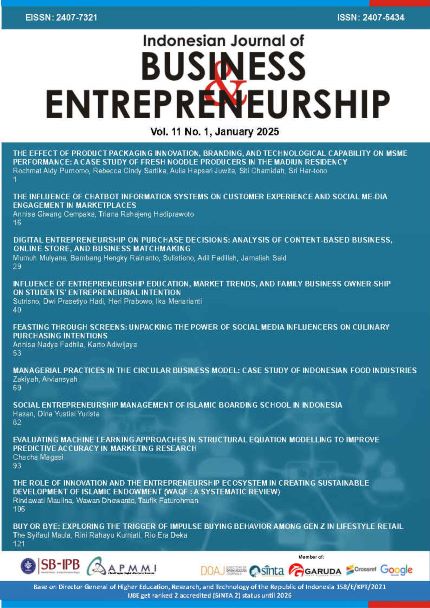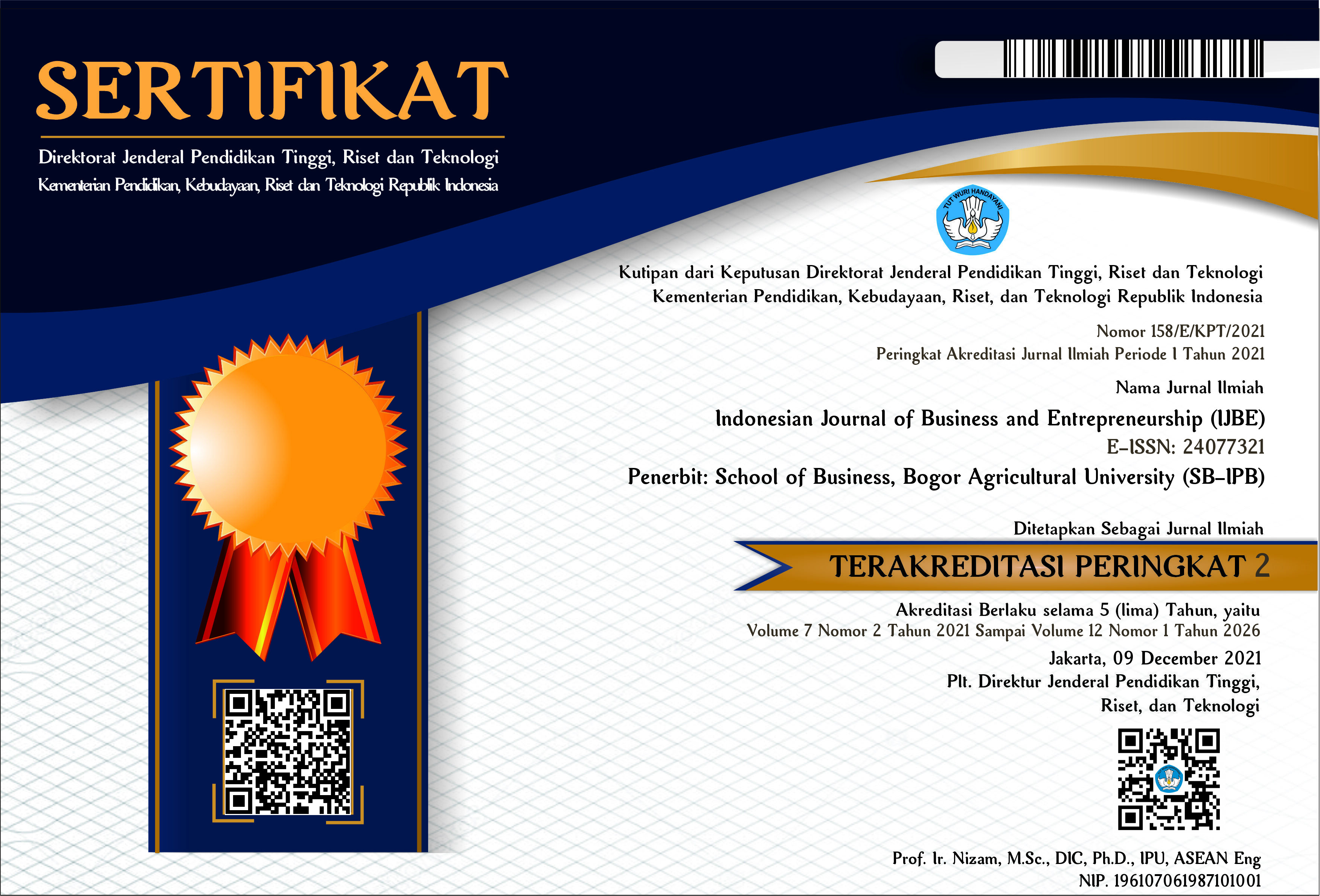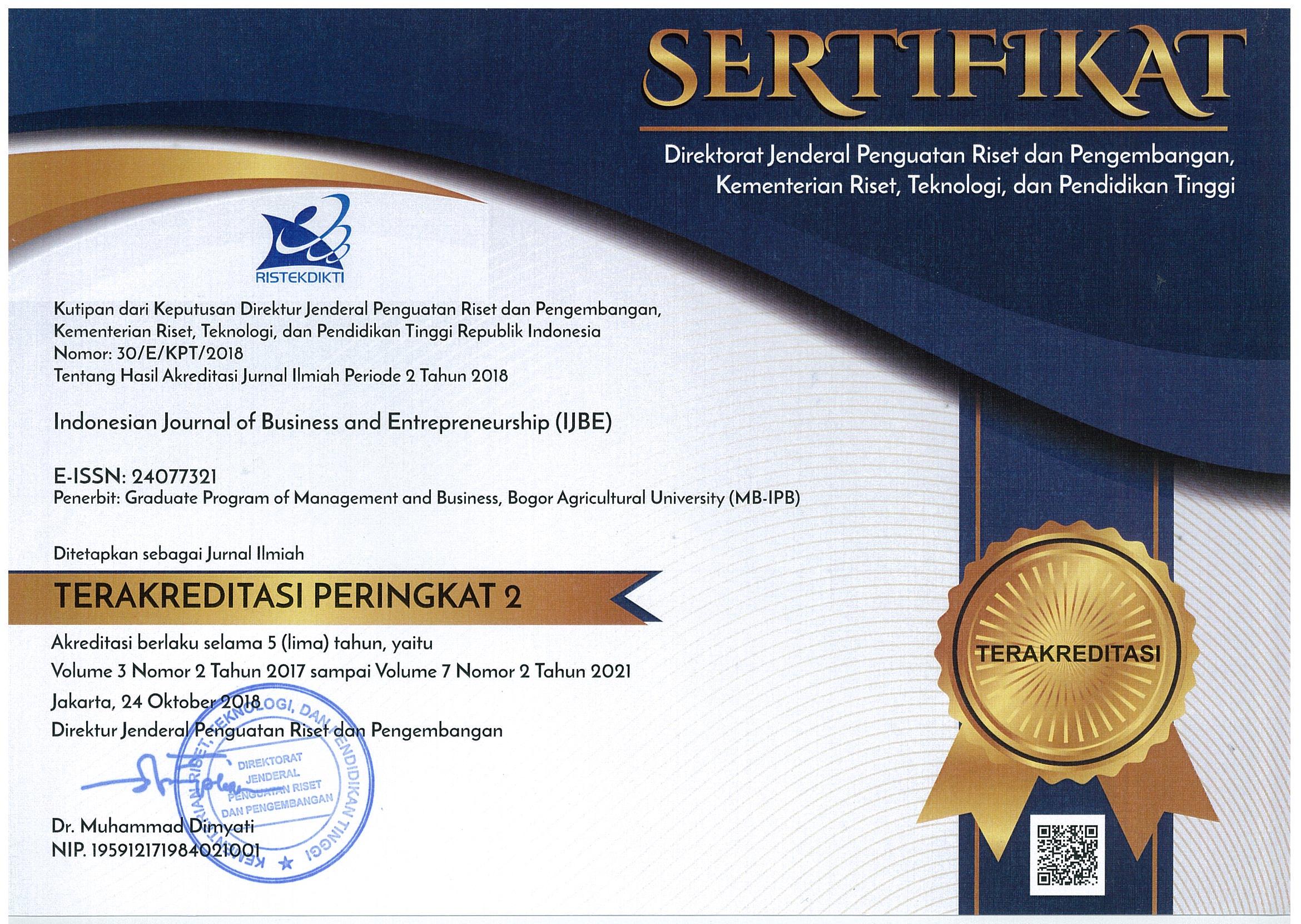Social Entrepreneurship Management of Islamic Boarding School in Indonesia
Abstract
Background: Entrepreneurship plays a crucial role in addressing global challenges, including extreme poverty. Educational institutions, particularly Islamic boarding schools, act as key players in social entrepreneurship by empowering local communities economically. Many Islamic boarding schools operate businesses with dual objectives: providing self-reliance education for students and generating income to support the schools' economic independence. Purposes: This study aims to analyze the management of social entrepreneurship in two Islamic boarding schools that have managed various kinds of businesses (conglomerates) in a modern and sustainable manner: Pondok Al-Ashriyah Nurul Iman (PANI) and Pondok Pesantren Sunan Drajat (PPSD).
Design/methodology/approach: The research was conducted with a qualitative approach using a case study method on two Islamic Boarding schools in Bogor, West Java and Lamongan, East Java, Indonesia. In depth interviews were conducted with kyai and managers of both Islamic boarding schools.
Findings/Results: This study identifies the key factors driving the success of pesantren social entrepreneurship: (1) waqf-based assets; (2) a large and high-quality student body; (3) committed pesantren leaders; and (4) professional and reliable human resources.
Conclusion: The application of entrepreneurship is managed and led by the leaders of the two Islamic boarding schools who are committed to implementing social entrepreneurship in Islamic boarding schools to provide quality but inexpensive and even free education.
Originality/Value: Pondok Al-Ashriyah Nurul Iman (PANI) and Pondok Pesantren Sunan Drajat (PPSD) demonstrate best practices in the input-based approach to pesantren social entrepreneurship systems.
Keywords: boarding school, economic development, entrepreneurial management, social entrepreneurship, waqf asset








